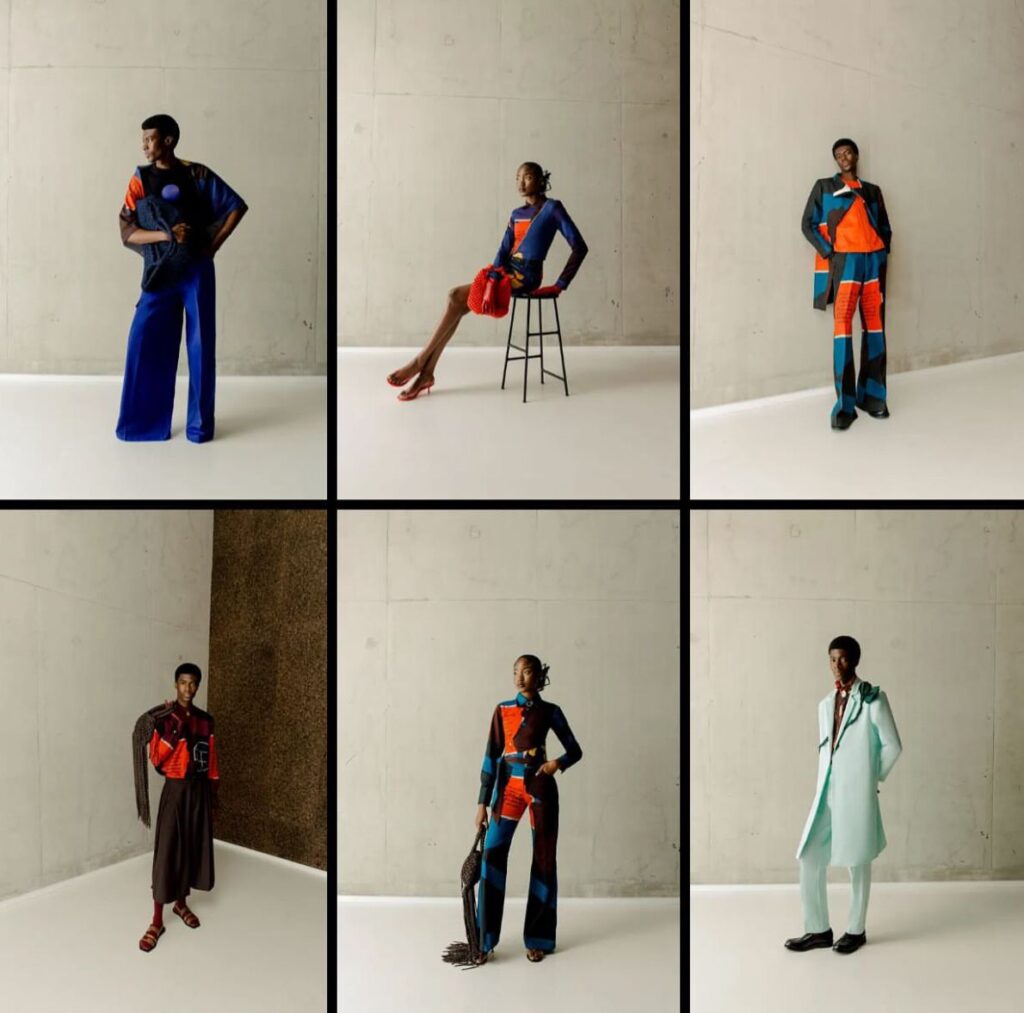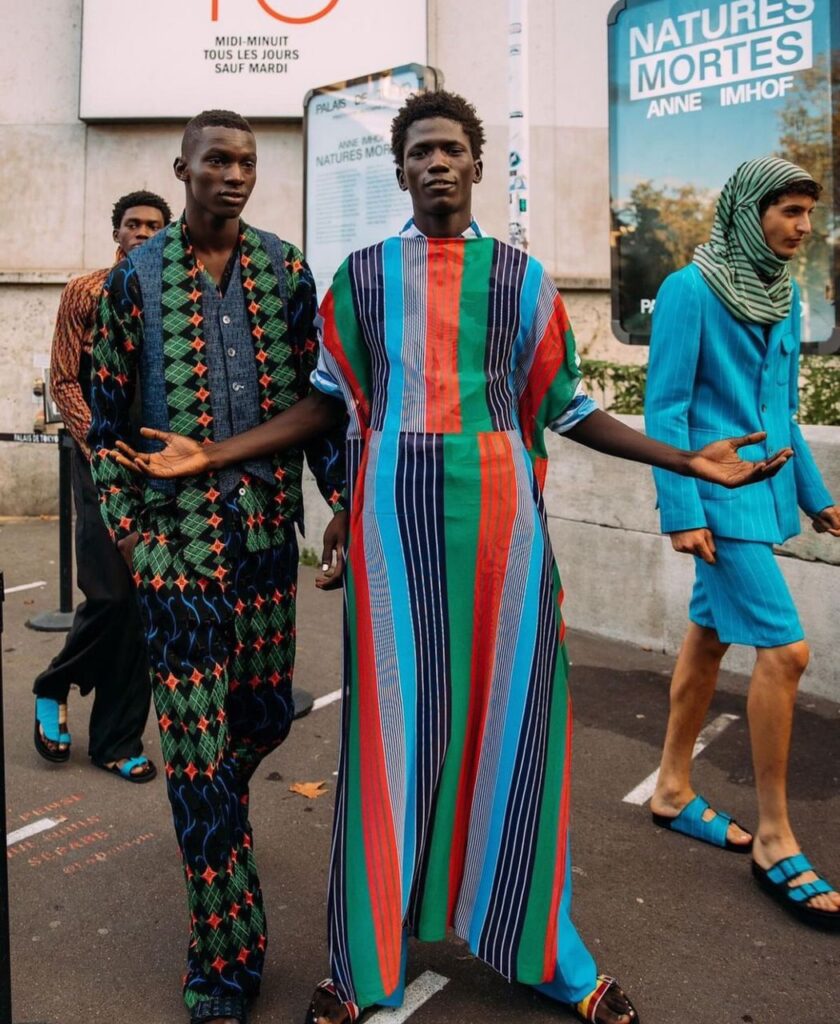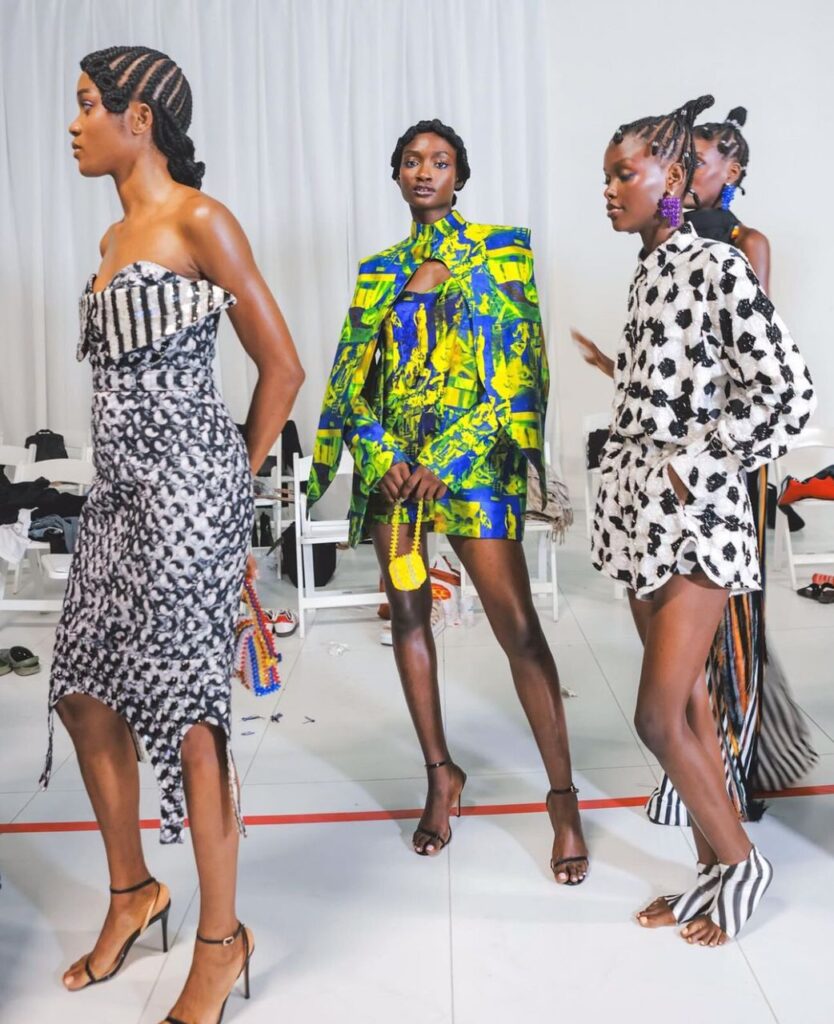Lagos Fashion Week (LFW) has grown into a significant platform for showcasing African fashion, driving innovation, and positioning Lagos as a fashion capital with global influence. Since its inception, LFW has spotlighted talented designers from across the continent, championed sustainable practices and expanded the reach of African fashion globally. The event serves as a vital hub for emerging designers, established brands, and international fashion enthusiasts, all contributing to the continent’s evolving narrative within the global fashion landscape.
Lagos Fashion Week – Showcasing Africa’s Diversity and Creativity
LFW celebrates the diversity of African cultures, spotlighting designers who draw from their unique cultural backgrounds to create pieces that are modern yet rooted in tradition. Designers like Lisa Folawiyo, who infuses traditional Nigerian patterns with contemporary silhouettes, and Kenneth Ize, known for his revival of aso-oke fabric, exemplify how African fashion has evolved to retain its authenticity while appealing to a global audience. These designers reinterpret African textiles and patterns, bringing fresh, innovative styles that resonate with local and international consumers.

Beyond clothing, LFW is a visual representation of Africa’s creativity and versatility, with many collections exploring themes around identity, heritage, and social issues. The boldness of African design showcased at LFW challenges Western perceptions of African fashion as monolithic, revealing a rich tapestry of styles, influences, and innovations instead. By providing an avenue for designers to present collections on an international stage, LFW strengthens Africa’s cultural footprint in the global fashion narrative.
Building a Fashion Ecosystem in Lagos
Lagos Fashion Week is more than just a showcase; it’s a driving force in building a fashion ecosystem within Lagos and across Nigeria. Through workshops, panel discussions, and networking events, LFW fosters an environment where designers, retailers, and investors can collaborate and exchange ideas. This support infrastructure is essential for growing Nigeria’s fashion industry, providing designers with the tools to scale their businesses and establish sustainable brands.
Moreover, LFW is committed to promoting sustainable practices and ethical fashion. The “Green Access” initiative, introduced in recent years, provides a platform for designers to explore eco-friendly practices, supporting the industry’s shift toward sustainable and ethical production. Through partnerships with organizations like the United Nations, LFW encourages African designers to adopt sustainable practices that align with global standards, from eco-conscious material sourcing to waste reduction.
Job Creation and Economic Impact
The fashion industry in Lagos is a burgeoning sector with significant economic potential, and LFW plays a crucial role in driving this growth. According to the Nigerian Export Promotion Council, the fashion industry is estimated to create nearly a million jobs by 2025, highlighting its potential to boost Nigeria’s economy. LFW provides a platform for designers to connect with buyers, wholesalers, and retailers, offering them access to markets they may not have otherwise reached. This connection facilitates job creation across the fashion value chain—from garment makers and textile producers to stylists, marketers, and photographers.

Furthermore, the fashion industry’s expansion attracts international investment, as Lagos solidifies its reputation as a viable business hub in the fashion world. LFW brings buyers and industry leaders from around the globe to Lagos, resulting in cross-border collaborations and partnerships that benefit local designers and the wider economy. By positioning Lagos as a key player in the global fashion industry, LFW helps Nigeria attract investment and develop its manufacturing capabilities, ultimately contributing to the country’s economic resilience.
Redefining African Fashion on the Global Stage
LFW is instrumental in challenging stereotypes and redefining African fashion in global markets. In recent years, African designers have gained recognition in prominent fashion capitals, with their work featured in international publications, fashion weeks, and prestigious awards. Lagos Fashion Week has been a stepping stone for several designers to reach international markets, giving them a platform that amplifies their voices and highlights their talent.
The global impact of LFW can be seen in collaborations with international brands that seek to incorporate African aesthetics into their collections. For instance, Nigerian designer Maki Oh has collaborated with global brands and dressed international celebrities like Michelle Obama and Solange Knowles. These collaborations, facilitated by LFW’s visibility, allow African designers to participate in the global fashion conversation, showcasing African culture and creativity to a broader audience.
The Role of Digital Platforms in Expanding LFW’s Reach
With the rise of digital platforms, LFW has embraced technology to reach global audiences, allowing those who cannot attend in person to experience the event. Livestreaming runway shows, posting real-time updates on social media, and offering online shopping experiences enable LFW to transcend geographic limitations, connecting fashion enthusiasts from all over the world to African fashion. This digital presence also empowers African designers to build an international customer base and engage directly with consumers.
Social media, in particular, has been a powerful tool in LFW’s strategy to promote African fashion. Instagram and Twitter allow designers to connect directly with a global audience, breaking down traditional barriers to market entry. This digital strategy has allowed LFW to expand its impact and reach, further establishing Lagos as a global fashion capital.

A Bright Future for African Fashion
Lagos Fashion Week’s impact on the local and global fashion industry is undeniable. By championing African talent, fostering a sustainable fashion ecosystem, and promoting African fashion on an international scale, LFW has redefined what it means to be a fashion capital. As LFW continues to grow, it celebrates African creativity and highlights Africa’s potential to contribute to the global fashion industry in meaningful ways.
With an expanding digital presence, a commitment to sustainability, and strong international interest, LFW is well-positioned to continue its influence in reshaping African fashion’s global narrative. As it propels Nigerian designers into the spotlight and builds an ecosystem that fosters creativity and collaboration, Lagos Fashion Week is paving the way for a new era in African fashion—one where African designers are celebrated not just within the continent but around the world.
Cover image: Global superstars Viola Davis, Burna Boy, and Naomi Campbell in Kenneth Ize
